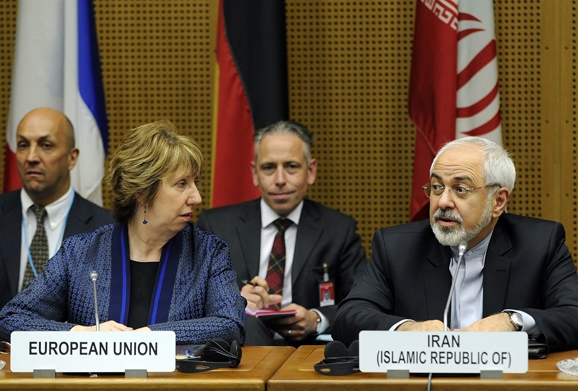The challenge now facing the P5+1 nations and Iran is how to turn the general principles enshrined in the framework agreement into a workable treaty. In theory, this treaty will constrain Iran’s ability to take its nuclear technology—that it claims it is entitled to possess under the terms of the Nuclear Non-Proliferation Treaty—and divert it for military purposes, while also creating a pathway for the Islamic Republic to reintegrate fully with the global community of nations. But if the foundation is felt to be flawed, can a lasting and enforceable agreement be constructed?
Much depends on the evaluation of the talks themselves. Have all the participants negotiated in good faith, with an intent to execute faithfully any and all obligations undertaken?
The starting points of the two principal interlocutors--the United States and Iran--were certainly diametrically opposed. The U.S. stood for a complete dismantling of Iran's entire nuclear infrastructure--even the parts supposedly geared for civilian use; elimination of its ballistic missile program (which would enable the delivery of nuclear weapons); and, for good measure, would shed no tears if the Islamic Republic were to fold under international pressure or collapse as a result of internal unrest. Iran, for its part, wanted to preserve as much of its nuclear and missile base as possible with the least amount of international scrutiny, while having all sanctions lifted and binding guarantees given for regime security.
The framework agreement represents a clear compromise between these positions; committing Iran to greater and more intrusive inspections that it prefers, while the United States accepts that Iran will continue to possess a sizable amount of nuclear technology. The questions now besetting the negotiators are developing a comprehensive and credible inspections regime that will minimize Iranian incentives to cheat while removing barriers to Iran's reintegration that the United States might prefer to keep in place for leverage.
Is that possible? The trust barrier seems quite insurmountable. Iran remains concerned that an inspections regime would go far beyond what would be needed to guarantee compliance with any agreement and would become a tool for interference. For its part, the United States points to Iran's history of concealment of its nuclear program from the International Atomic Energy Agency and its foot-dragging in previous talks to suggest Iran is not serious about implementing any deal but is merely playing for time to be able to cross the proverbial finish line. Indeed, some in the U.S. are concerned that Iran could repeat the North Korea experience: signing a deal that buys the regime time and some relief from economic pressure in order to complete its nuclear goal without fear of outside attack--and thus presenting the world with a fait accompli.
If these issues remain insurmountable, the interesting question is whether both the Iranian government and the Obama administration decide to freeze the situation and keep an interim arrangement in place, to kick the issue down the road to a time that might be more favorable for a settlement. Or will the United States and its regional allies decide that the diplomatic option has run out of time, and that the time has come to employ military force to settle the issue?
The ethical statesman has no immediate answers. Continuing to talk and to keep open the possibility of a peaceful settlement seems the ethical course of action--but if negotiations are but a ploy and a party has no interest in implementing a settlement in good faith, walking away from the talks might be the more ethical decision. There is sufficient evidence to support either supposition.
When news headlines blare, "Who's telling the truth" when it comes to the competing Iranian and American interpretations of what was agreed, the situation doesn't look all that promising.

